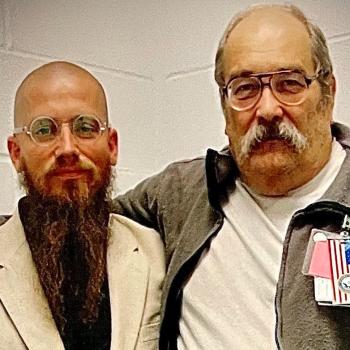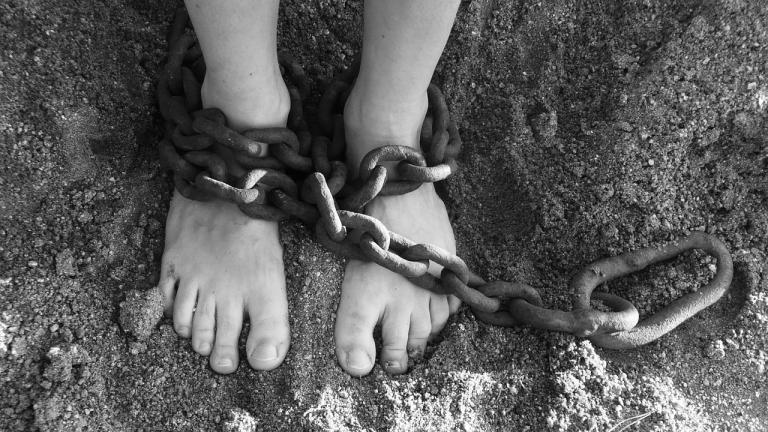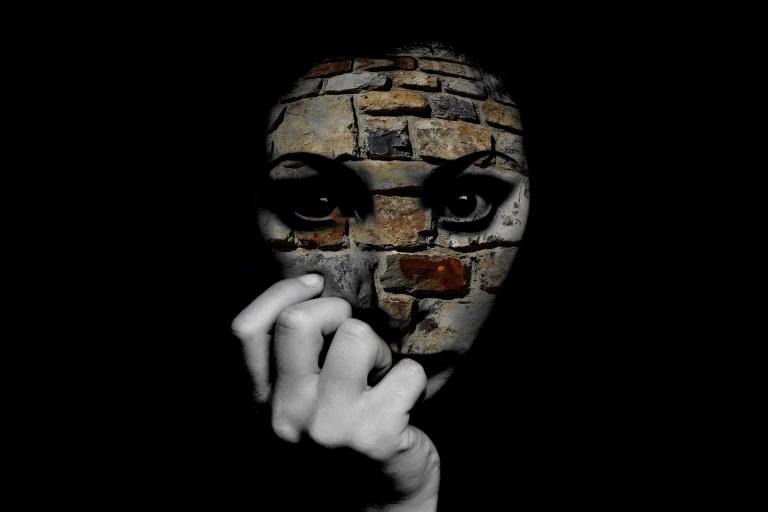It was my last year of high-school, late at night, and my boyfriend, J, was driving me home. Or rather, that’s where he was supposed to be driving me. Instead, he put on some loud and violent music that I told him I didn’t like and started driving out to the middle of nowhere. As he drove, he talked about how he wanted to kill me.
My emotional reaction at the time was slightly puzzling, but also pleasing to me. I felt practically nothing. I wasn’t afraid. I didn’t start crying or beg for my life. I wasn’t even mad. I remember watching the situation unfold as if I were a disinterested onlooker. My primary reaction was a kind of detached confusion: J’s behaviour made no sense, it was irrational, disproportionate, impossible to understand.
I can’t remember whether I said anything or just sat there in unresponsive silence, but eventually he drove me home.
And I continued to feel nothing. When he later insisted that he still didn’t want to break up with me, that he just felt there was something special between us, I was even more confused. I told him that I thought he was being irrational, that he didn’t seem to want what I was offering, and that being in a relationship with me seemed to be causing him more distress than good. However, I respected that he was better positioned to understand his own needs than I was, and if he wanted to continue to see me that was his choice.
Provided, that is, he understood and accepted that the relationship was on the terms that I had established when I first agreed to go out with him: that it was an open relationship, one that did not involve commitment, and would never involve sex.
He insisted that he would rather have that than lose me altogether, and so the relationship continued for another couple of months before he finally decided that I was a cold, emotionally immature, lesbian bitch. He dumped me by sending me a picture of us at our prom. My face was burnt out and a long, angry tirade involving a lot of swearing was written on the back.
I reacted to this more or less as one reacts to a dead mouse or a large turd left on the front porch. I didn’t bother reading the tirade. I dropped it into the trash can in the cafeteria and moved on with my day.
It resurfaced again a few days later. My male best friend – the man who I would later marry – had picked the photo up out of the trash and made photocopies. I think those photocopies might even still be around somewhere, tucked into a drawer in the filing cabinet.
“Have you read this?” he asked.
“No,” I said, wondering why he had bothered to preserve J’s idiotic outburst.
“Don’t you feel guilty?”
Guilty.
Not “Aren’t you scared?” “Aren’t you upset?” “Are you okay?” But “Don’t you feel somehow responsible for this?”
That should have been telling. It should have set off a thousand red flags. But it didn’t. At 17, I was intelligent enough to have read Kant’s Metaphysic of Morals, and rational enough to have implemented it as my ethical philosophy. But J was right about one thing: I didn’t get emotions.
Which is why I also didn’t get that my emotional reaction, or rather lack thereof, didn’t mean that I was unaffected by J’s threats and outbursts. I thought I was practising the precise kind of clear. rational detachment that my philosophy prescribed. I didn’t realize that I was actually dissociating from a traumatic series of events.
Which also meant I didn’t realize that I was vulnerable, and I didn’t think about the impact of that relationship on any of the changes that happened in its aftermath.
As far as I was concerned, I was fine. I was happy to have a philosophical discussion with my friend about guilt – which I rejected as a particularly useless emotion. I was still fine when I was walked into class at the end of the year to find that J’s contribution to our Writer’s Craft anthology was basically a not-very-thinly veiled series of murder fantasies in which I starred as the victim. It didn’t bother me when other male friends were unconcerned, seeing this as basically a joke at my expense.
None of it affected me. After all, when a person chose to do evil they were really choosing to harm themselves. If you just decided not to let the evil in, it had no power over you. I was marvelously, rationally unaffected.
I Choose To Be Okay
It would take decades for me to realize that actually I was deeply affected, that by willing myself to be indifferent actually I was just choosing not to deal with the situation. I was pushing all of the emotional reactions deep down into my psyche, where of course they were able to wreak havoc undetected in the deeps.
I always lived amid abstractions. It didn’t occur to me that the philosophical crisis that followed hot on the heels of the J disaster was, in fact, a direct reaction to that disaster. Sure, it was only shortly thereafter that my high-school Kantianism failed. It crashed and burned. I felt slightly concussed, wandering around my neighbourhood, trying to figure out how to make sense of a world where the centre suddenly did not hold.
But that had nothing to do with J. It was because I’d been read Fear and Trembling. Kant didn’t fall because I was subjected, rather violently, to the fact that humans do not always behave like autonomous rational agents of infinite worth and dignity. Kant fell because he was toppled by Kierkegard. That was a narrative I could accept.
The narrative of a rational agent who could choose not to be a victim, someone who could escape the realities of evil and violence simply by willing herself not to be traumatized.
The Detachment Trap
It’s a common enough cultural trope. It’s what we’re saying when we sing that old children’s rhyme: “Sticks and stones can break my bones, but names can never hurt me.” It’s the lie behind the claim that oppressed peoples can just pull themselves up if they stop “playing the victim.” It’s hidden in plain view by pop psychology about the power of “positive thinking.”
In its more intellectually respectable forms it appears in Platonism, in Stoicism, in some forms of Buddhism. As Hamlet puts it, “there is nothing either good or bad but thinking makes it so.”
What all of these have in common is a belief that emotional and psychological wounds are like vampires: they can’t come in unless you open the door. All you have to do is steadfastly shut your negative emotions out and you’re pretty much safe from anything except for direct physical assaults.
But it isn’t true. When traumatic events are minimized or deflected, it doesn’t make them not traumatic. My philosophical dissociation didn’t render me invulnerable. On the contrary, it left me particularly vulnerable to my ex-husband’s suggestion that guilt is an appropriate emotional reaction to being threatened and mistreated. It left me unable to understand that psychological genesis of the intellectual, existential and personal crises that rocked me in the months following my break-up with J. It left me at the mercy of emotional forces that I was unable to identify or name.
This is why validation is so important for victims. Because in the aftermath of trauma, people are confused. It’s very common for victims of abuse, rape or other traumatic life-events to not even realize that they have been victimized until finally they hear their experience named. This doesn’t mean that they can live in blissful ignorance if only nobody says anything. The unnamed, the unspeakable, lurks in the subconscious, silently ravaging the ego from its subterranean lair.
Naming it brings it to light. The terrible Kraken that battens on the detritus of the self is called forth. It rises in roaring, once made visible, and on the surface dies.
Image courtesy of Pixabay.
Stay in touch! Like Catholic Authenticity on Facebook:
















